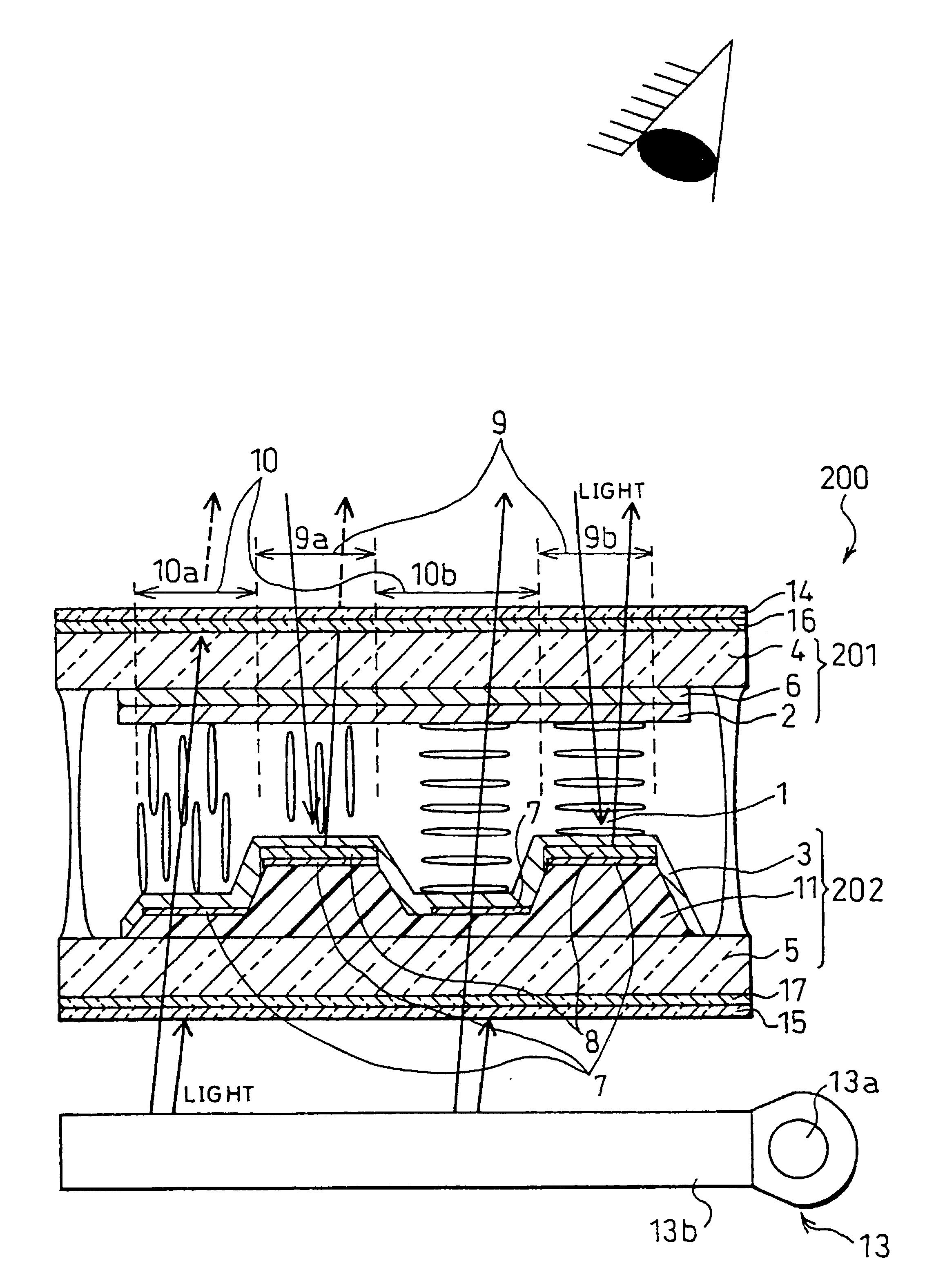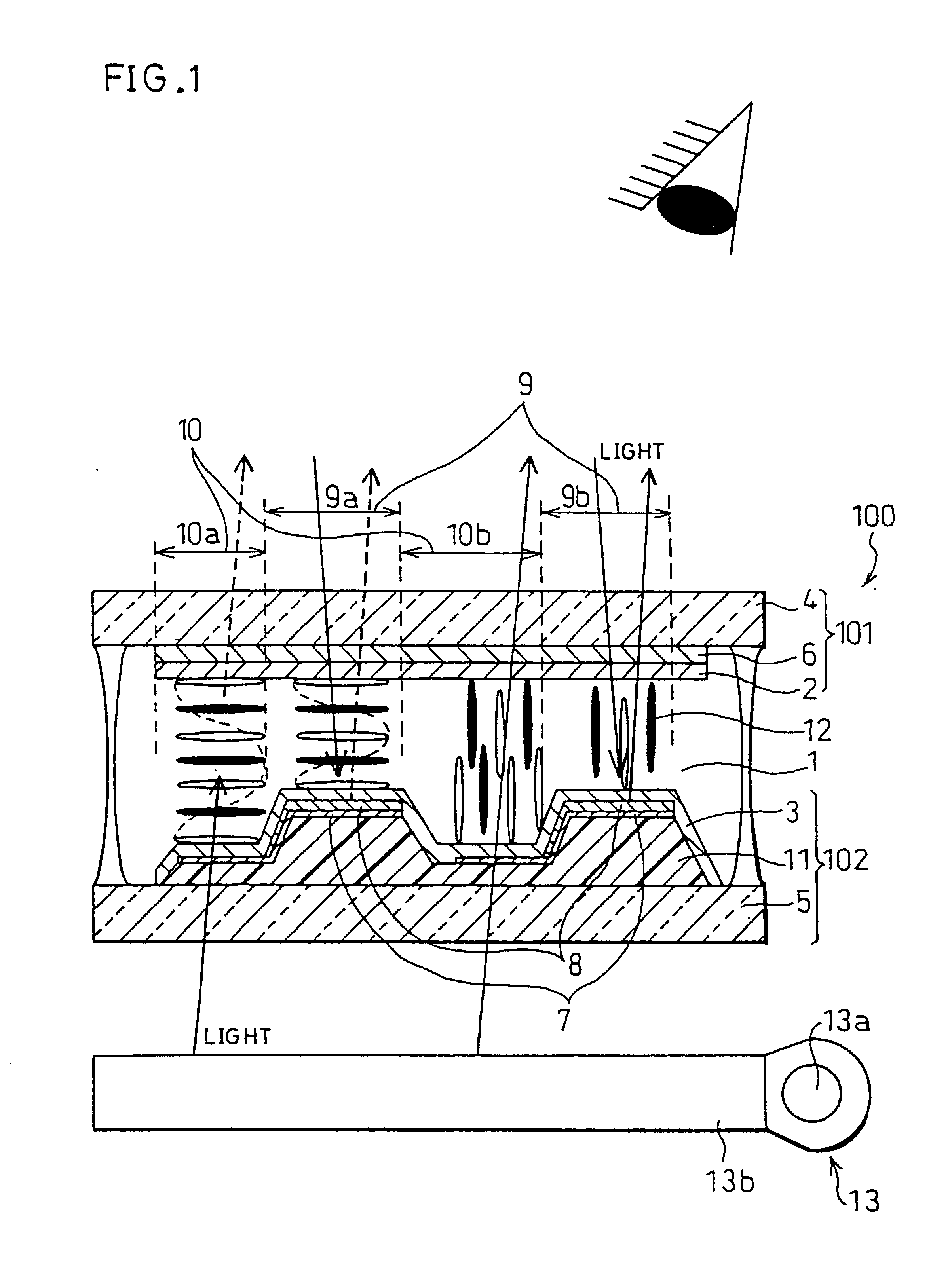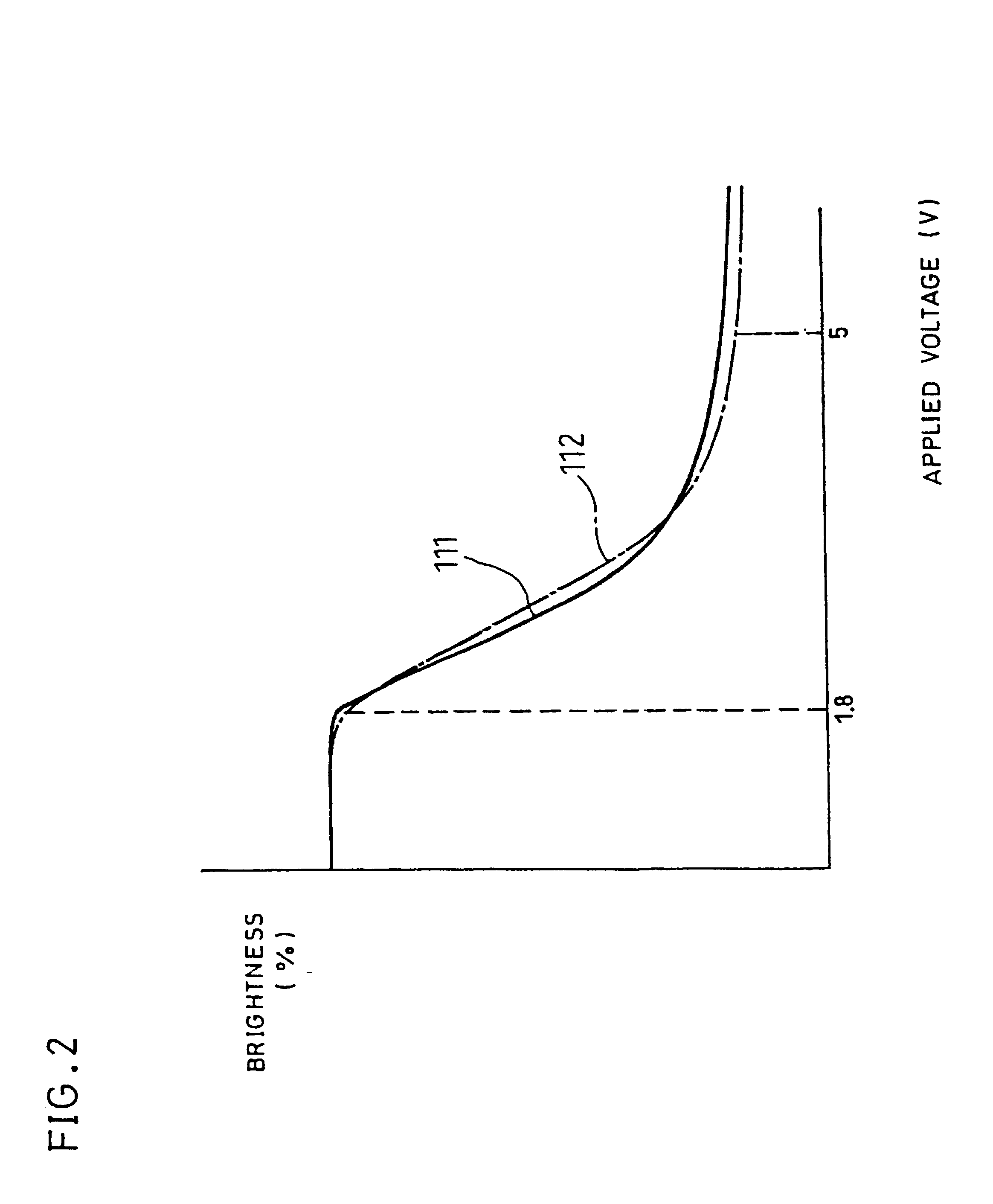Liquid crystal display
a technology of liquid crystal display and display screen, which is applied in the direction of liquid crystal compositions, instruments, chemistry apparatus and processes, etc., can solve the problems of insufficient brightness, inability to obtain satisfactory display, and low contrast ratio, so as to prevent washout, small power consumption, and excellent visibility
- Summary
- Abstract
- Description
- Claims
- Application Information
AI Technical Summary
Benefits of technology
Problems solved by technology
Method used
Image
Examples
embodiment 1
[0117]Mainly referring to FIG. 1, an example liquid crystal display adopting the Δn method will be explained in the present embodiment.
[0118]FIG. 1 is a cross section of a major portion of the liquid crystal display in accordance with the present embodiment. As shown in the drawing, the liquid crystal display includes a liquid crystal cell 100 (liquid crystal display element), and optionally, a back light 13 (lighting device) serving as back light means. The liquid crystal cell 100 and back light 13 are provided sequentially in this order from the viewer's (user's) side.
[0119]As shown in the drawing, the liquid crystal cell 100 is composed of a liquid crystal layer 1 sandwiched by an electrode substrate 101 (first substrate) and an electrode substrate 102 (second substrate). The electrode substrate 101 has an alignment film 2 on a surface touching the liquid crystal layer 1 (an interface between the first substrate and the liquid crystal layer 1), and the electrode substrate 102 has...
example 1
[0149]Explained in the present example is a liquid crystal display employing the liquid crystal layer 1 adopting the GH method, in which the liquid crystal having the negative dielectric constant anisotropy aligns substantially perpendicular to the display surface when no voltage is applied to the liquid crystal layer 1 and tilts with respect to the display normal when a voltage is applied to the liquid crystal layer 1. First, the following will explain a method of manufacturing the liquid crystal display.
[0150]Initially, a 140 nm-thick ITO film is sputtered over the transparent substrate 4, which is etched by photolithography, whereby the electrode 6 (transparent electrode) of a predetermined pattern is formed. Here, a glass substrate is used as the substrate 4.
[0151]Next, a vertical aligning alignment film is provided to the substrate 4 by the offset printing on the surface where the electrode 6 is formed, and the substrate 4 is baked at 200° C. in an oven, whereby the alignment f...
embodiment 2
[0172]The liquid crystal display of Embodiment 1 adopts the GH method, but liquid crystal displaying methods other than the GH method are also applicable. For example, another applicable method is shown in FIG. 4, in which the substrates 4 and 5 are sandwiched by polarization plates 14 and 15, so that the retardation or optical rotatory polarization (which are collectively referred to as polarization converting function) of the liquid crystal layer 1 is used for the display.
[0173]In the present embodiment, a liquid crystal display using the polarization converting function will be explained with reference to FIG. 4 mainly. Hereinafter, like components are labeled with like reference numerals with respect to Embodiment 1, and, for ease of explanation, the description of these components is not repeated here.
[0174]FIG. 4 is a cross section showing a major portion of the liquid crystal display of the present embodiment. The liquid crystal display of FIG. 4 includes a liquid crystal cel...
PUM
 Login to View More
Login to View More Abstract
Description
Claims
Application Information
 Login to View More
Login to View More - R&D
- Intellectual Property
- Life Sciences
- Materials
- Tech Scout
- Unparalleled Data Quality
- Higher Quality Content
- 60% Fewer Hallucinations
Browse by: Latest US Patents, China's latest patents, Technical Efficacy Thesaurus, Application Domain, Technology Topic, Popular Technical Reports.
© 2025 PatSnap. All rights reserved.Legal|Privacy policy|Modern Slavery Act Transparency Statement|Sitemap|About US| Contact US: help@patsnap.com



